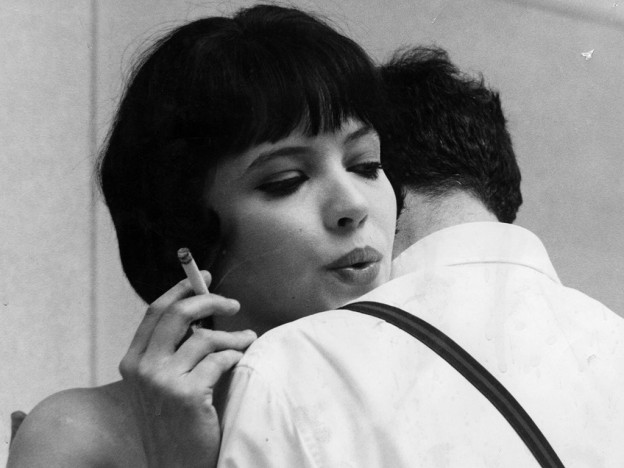
Dir.: Jean-Luc Godard, Jean-Pierre Gorin; Cast: Jane Fonda, Yves Montand, Vittorio Caprioli; France/Italy 1972, 95 min.
The first stage of Jean-Luc Godard’s career as a director ended in 1968 with Weekend. What followed was the period of the “Dziga Vertow” collective, starting with A Movie Like all the Others (1968) and finishing with Vladimir and Rosa in 1971. Godard’s main collaborator was Jean-Pierre Gorin, a former student activist, and like Godard, a hard-core Maoist. The films of this period were so esoteric and dogmatic, that Godard became an ‘Un-person’ forgotten but by a handful of admirers. But in 1971 Godard and Gorin were aware “that we were in a kind of ghetto, and we really wanted to go outside”. The answer was TOUT VA BIEN – which nearly didn’t get made: on his way to Rome airport on June 7th 1971 – to meet Paramount in Hollywood -, he had a near fatal motorcycle accident, suffering a skull fracture, a broken pelvis and internal injuries. He was in a coma for a month, and could only attend the shooting of TOUT VA BIEN hobbling on crutches and with a catheter.
The film starred Jane Fonda (Susanne) and Yves Montand (Jacques) and “was meant to explore the class struggle in France four years on from 1968”, and starts with the opening gambit “If you use stars, people will give you money”; followed by a flurry of checks being signed. Fonda – a radical feminist, who had to persuaded by Gorin more than once to stick with the project – plays Suzanne, an American journalist who visits a sausage factory with her boyfriend Jacques (Montand) an ex-feature filmmaker, who has turned to directing commercials, “because it is more honest”. They are supposed to do a piece on “modern management”, but soon find themselves in the middle of a wildcat strike. To make his point, Godard had the workers played not by workers, but unemployed actors. The director and the stars are locked in by the workers for a night, but released in the morning. Suzanne starts to question her relationship with Jacques, and her own identity: I am supposed to be an American correspondent in France, but I correspond to nothing”.
The actors often address the audience directly in front of the camera, achieving a ‘Brechtian’ detachment. The two-story set is open, and the resulting image are reminiscent of Jerry Lewis’ Girls School in The Ladies Man (1961). At the end there is a long, lateral tracking shot in a supermarket, when workers and students run riot and “liberate” the consumer goods.
The overbearing diagrammatical structure meant, that TOUT VA BIEN was a critical and financial failure, for which Gorin was held responsible by Godard’s (soon to be ex-wife) Anne Wiazemsky: “Gorin brought out the worst of him, dragged him towards a cinema that was not his own. He created a void around him. I left because of (Gorin), because of living with him. He was like a political commissar. All my problems with Jean-Luc date from his arrival”.
In hindsight, the truth might be different: all Cahiers du Cinema critics – with the exception of Jacques Rivette – were politically very much to the right, and Godard, as one friend remarked “was only one step away from being a Fascist”. Godard’s “change” into a Maoist revolutionary was therefore hardly surprising – Maoism offering a left wing alternative of an unreflective, inhuman ideology.
As film history goes, TOUT VA BIEN can be seen as a bridge to Passion (1982), which is a less political love story, set in a factory. As for the much-acclaimed follow-up, A Letter to Jane” (shown together with TOUT VA BIEN at the New York premiere in the autumn of 1972), where Gorin/Godard judge Fonda rather harshly after her visit to Hanoi, that film’s “success” was credited to Godard. AS
OUT ON RELEASE COURTESY OF THE CRITERION COLLECTION